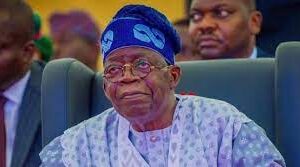The first and only Executive President of Nigeria’s Second Republic (1979–1983), Alhaji Shehu Usman Aliyu Shagari, GCFR, was born February 25, 1925 into the polygamous family of Aliyu and Mariama, in the northern Shagari village founded by his great-grandfather, Ahmadu Rufa’i, who was also the Village Head, and took the name Shagari as his family name.
Like most of his contemporaries, the young Shagari started his education in a Quranic school and later lived with relatives at a nearby town, where from 1931-1935, he attended Yabo Elementary School.
In 1936-1940, he went to Sokoto for his middle school education, and then from 1941-1944 attended Kaduna College, having matriculated at the Teachers Training College, in Zaria, Kaduna, Nigeria.
From 1953-1958, Shagari started his teaching career as a visiting teacher at Sokoto Province.
With an unequalled passion to lead and liberate his people, the young Shehu Usman Shagari joined politics in 1951. And within a very short time, he emerged the secretary of the Northern People’s Congress (NPC) in Sokoto, Nigeria, a position he held until 1956.
And in between, Shehu Shagari, was in 1954, elected into his first public office as a member of the Federal House of Representatives for Sokoto West.
Shagari also served seven times in a ministerial or cabinet post as a federal minister and federal commissioner from 1958–1975.
In 1958, Shagari was appointed as parliamentary secretary (he left the post in 1959) to the Nigerian Prime Minister, Sir Abubakar Tafawa Balewa, while also serving in the same year as the Federal Minister for Commerce and Industries.
From 1959-1960, Shagari was redeployed to the Ministry for Economic Development as the Federal Minister in charge of the ministry. In 1960-1962, he was moved to the Pensions Ministry as the Federal Minister for Pensions. From 1962-1965, Shagari was made the Federal Minister for Internal Affairs, and later the Federal Minister for Works up until 1966 military putsch.
In 1967, the quintessential teacher was appointed secretary for Sokoto Province Education Development Fund, and between 1968-1969, he was given a state position in the North Western State as commissioner for establishments.
Surprisingly, after the Nigerian civil war, from 1970-1971, Shagari was appointed by the military Head of State, General Yakubu Gowon, as the Federal Commissioner for Economic Development, Rehabilitation and Reconstruction.
With the announcement by the Murtala/Obasanjo regime to return the nation to democracy, Shagari and some like minds, in 1978, formed the National Party of Nigeria, a party then known for its ‘One Nation, One Destiny’ symbol, with agriculture as its main programme for the people.
And by sheer destiny and his wealth of experience, the NPN magnanimously chose the teacher and revered administrator as its presidential flag bearer in 1979. At the fiercely contested polls, Shagari beat his opponents, including late sage, Chief Obafemi Awolowo of the Unity Party of Nigeria, to emerge the President and Commander-in-Chief of the Federal Republic of Nigeria.
He received the baton of leadership from the then Head of State, General Olusegun Obasanjo in 1979. Shagari contested for a second four-year term in 1983 and won the general election in the famous but controversial 2/3 of the existing number of states, via the Supreme Court judgement..
However, on 31 December 1983, Shagari was overthrown by the Major General Muhammadu Buhari-led military junta on account of corruption and political crisis occasioned by the outcome of the 1983 elections.
Shagari was made the Turaki of the Fula Sokoto Caliphate in 1962 by the Sultan of Sokoto Siddiq Abubakar III. Turaki means an officer at court, in this case referring to the sultan’s court at the palace of Sokoto. In addition, he held the chieftaincy titles of the Ochiebuzo of Ogbaland, the Ezediale of Aboucha and the Baba Korede of Ado Ekiti.
Shehu Shagari married three wives: Amina, Aishatu, Hadiza Shagari. Although he has many children, grand children and great-grand children, however, the most visible of the children are Captain Muhammad Bala Shagari(rtd.) and Aminu Shehu Shagari.
On 24 August 2001, his wife, Aisha Shagari, died in a London hospital from a brief illness.
He died on 28th December 2018, at 1:30PM (WAT) in National Hospital in Abuja after a brief illness
For the record, the man Shagari, though led an administration alleged to be corrupt, the probe panel never found him guilty of personal enrichment. This therefore, stood him out as a humble and accessible leader, who led a life of service not only to his fatherland, but humanity in general.



